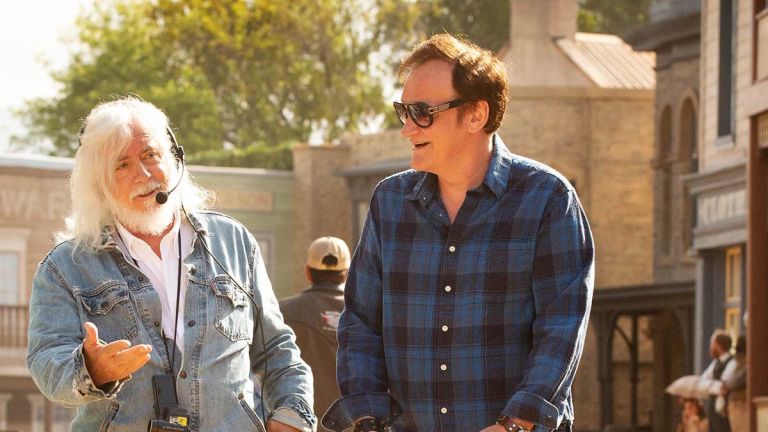Quentin Tarantino Calls The Social Network the Best Movie of the 2010s
Quentin Tarantino recognizes David Fincher’s The Social Network as the best movie of the last decade.

A million dollars isn’t cool anymore. You know what’s cool? A seal of approval from Quentin Tarantino. That’s what’s cool. It’s also what The Social Network received nearly 10 years after its release. Making a splash at the box office—if not with Oscar voters—the arguably first major film about the millennial generation was a pop culture touchstone in 2010 that’s aged like fine wine. With its haunting visuals masterminded by director David Fincher, razor sharp dialogue from Aaron Sorkin, and moody score by Trent Reznor and Atticus Ross, The Social Network remains a potent work, and clearly a favorite for the Pulp Fiction writer-director.
“It is number one because it’s the best, that’s all!” Tarantino told Premiere (via The Guardian). “It crushes the competition.” Tarantino’s suggestion of the competition also seems to be a thinly veiled reference to how the movie was infamously denied Best Picture and Best Director wins on Oscar night 2011. While Sorkin’s screenplay rightfully earned a Best Adapted Screenplay trophy, the Academy tripped over themselves to award the top prizes (and another six) to The King’s Speech. Given the latter movie was produced by Harvey Weinstein and directed by future Cats maestro Tom Hooper, the selection is arguably aging less gracefully than The Social Network’s reputation.
The Fincher film starred Jesse Eisenberg as a highly fictionalized version of Mark Zuckerberg, as well as Andrew Garfield as Facebook co-founder Eduardo Saverin and Armie Hammer as Cameron and Tyler Winklevoss. A story of American capitalism, greed, and ambition cast in the contrasting shadows of an aged Harvard campus and sunny Silicon Valley, the movie is Citizen Kane in flip flops. This is by design considering that Sorkin’s version of Zuckerberg is revealed in the final scene to have created Facebook just to impress the ex-girlfriend who broke up with him (Rooney Mara in a single devastating scene). Rosebud, indeed.
The film also is a triumph due to its pinpoint-precise and sometimes anxiety-inducing editing by Kirk Baxter and Angus Wall, and its evocative, noirish cinematography by Jeff Cronenworth. At the time of release, there was some apprehension about the cynicism in Sorkin’s screenplay being from a jaded older generation who didn’t “get” the social media revolution he was dramatizing. But given another 10 years worth of perspective on Facebook’s effect on society—and its use of data-mining and willful spreading of misinformation—one might say Sorkin was ahead of the curve.
For his part, Tarantino called Sorkin “the greatest active dialogist” working in cinema. This comes on the heels of Tarantino also previously calling Christopher Nolan’s Dunkirk (2017) his runner-up favorite movie of the 2010s.
